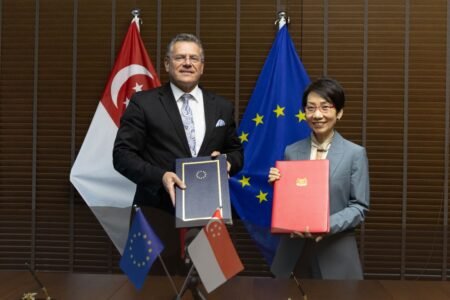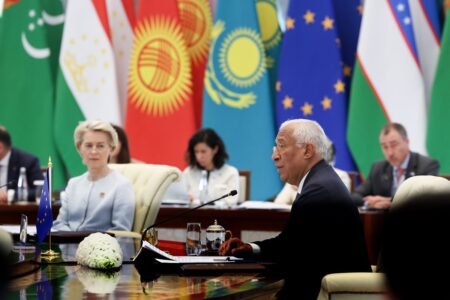The EU formally presented to the US on 12 November its proposal for a reformed approach on investment protection and a new and more transparent system for resolving disputes between investors and states: the Investment Court System.
Advertisement
The European Commission has finalised its new, reformed approach on investment protection and investment dispute resolution for the Transatlantic Trade and Investment Partnership (TTIP). This follows another round of extensive consultations with the Council and the European Parliament. The proposal for the Investment Court System has been formally transmitted to the United States and has been made public.
The final text includes all the key elements of the Commission’s proposal of 16 September, whose aim is to safeguard the right to regulate and create a court-like system with an appeal mechanism based on clearly defined rules, with qualified judges and transparent proceedings. The proposal also includes additional improvements on access to the new system by small and medium sized companies.
The new system would replace the existing investor-to-state dispute settlement (ISDS) mechanism in TTIP and in all ongoing and future EU trade and investment negotiations.
Since the publication of the Commission’s initial proposal, the text was circulated extensively for consultation to ensure broad endorsement of its main innovative elements, notably amongst co-legislators: EU Member States and the European Parliament.
These elements refer in particular to the strengthening of the right to regulate through a new article, the establishment of a new system for resolving disputes the Investment Court System , and the creation of an appeal mechanism to correct errors and ensure consistency.
One of the changes made to the 16 September proposal is an additional improvement for small and medium-sized enterprises that would benefit from faster proceedings and would enjoy privileged treatment in comparison with large multinational companies.
Next steps
The EU will now resume negotiations with the US on the subject of investment protection and resolution of investment disputes, and the Investment Court System. Negotiations in this area have been on hold since March 2014, when the European Commission launched a public consultation on ISDS in the TTIP.
In parallel to the EU-US negotiations, the European Commission will start work, together with other countries, on setting up a permanent International Investment Court. The Commission is also currently exchanging views with several international organisations in this field. The objective is to, over time, replace all investment dispute resolution mechanisms in EU agreements, in EU Member States agreements with third countries, and trade in investment treaties concluded between non-EU countries, with the International Investment Court. This would lead to the full replacement of the “old ISDS mechanism with a modern, efficient, transparent and impartial system for international investment dispute resolution.
Background
Text of proposal on Investment Protection and Resolution of Investment Disputes and Investment Court System in TTIP







